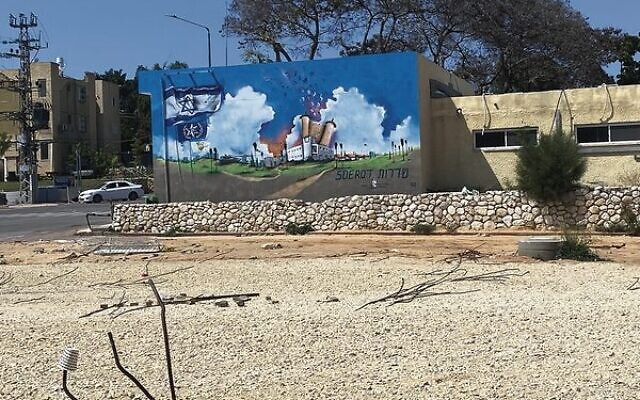Business as usual in the startup nation
The devastation they described was almost inconceivable.
My recent visit to Israel was profoundly moving but also incredibly instructive in understanding the depth of Israeli resilience, showcasing the ability of Israelis and Israeli business to recover quickly from crisis, bounce back better and thrive.
Arriving on a Friday into
Tel Aviv, my first impressions were that despite the terrible trauma and devastation of October 7 and the seven months of war since, life in this city that never stops partying didn’t actually feel much different to any other time I had visited, with the cafes, bars, restaurants and beach scene pumping as usual.
Visiting Hostage Square early on Saturday evening was a starkly different experience. We visited the booth of Nahal Oz and spoke with survivors who shared the stories of their family and friends who had been killed and kidnapped on October 7. The devastation they described was almost inconceivable.
That same night I scrolled through news alerts about a huge swarm of Iranian drones and missiles on their way to Israel in an unprecedented direct attack. Early next morning, after a largely sleepless night, we learned of the extraordinary Israeli and allied response in preventing more than 300 drones, cruise missiles and ballistic missiles from doing any serious damage.
Whilst pondering this miracle
I checked my emails to see that my Sunday meetings were all proceeding as planned. Despite an existential threat and crisis overnight, and probably not much sleep for anyone, it was business as usual the next day.
My visit to Sheba Hospital that day was remarkable as always. I met with Sheba’s Chief Innovation and Transformation Officer who explained that despite the war Sheba continues to share its unique ARC innovation model around the world and is currently in discussions with major hospital partners across France, Belgium, Canada, Germany and the US.
The head of Sheba Beyond, the Virtual Hospital of Sheba, explained that by October 8 the hospital had doubled its telemedicine capacity as the country was forced to stay in lockdown through ongoing missile attacks.
I also met with the amazing young woman who led the development of LIV, a new mental health triage platform leveraging generative AI and enabling the delivery of mental health services to be scaled and prioritised across the country.
This platform and its patent were remarkably developed at Sheba within six weeks of October 7 – and will help the unprecedented number of Israelis traumatised through the war and equally be of value to health systems across the globe grappling with their own mental health epidemics, exacerbated by severe health workforce shortages.
I also met the chief transformation officer and head of I-Metadata AI Centre at Ichilov Hospital, Liat, who was formerly the sole female commander in the elite 8200 unit, leading a cyber unit of 1000 officers and soldiers.
Since leaving the army two years ago, her focus was on an ambitious project at Ichilov to transform healthcare workflows and dramatically change health workforce efficiency.
Given that 25 per cent of patients in any hospital anywhere are deteriorating at any point in time, her team are building a hospital-wide platform to automate the detection and prediction of patient deterioration, allowing resources to be deployed effectively and patient outcomes to be significantly improved.
Perhaps one of the most inspiring examples of resilience I saw was in Sderot, the largest Israeli city attacked by Hamas on October 7. More than 50 people were killed in Sderot in the first days of the war, with most of Sderot’s 39,000 residents subsequently evacuated to hotels across the country.
With most of its residents now returned, Sderot is now home to the NatureGrowth Agtech Incubator, to be formally launched on July 1 as the only incubator and centre of technology in the Gaza Envelope region.
The centre plans to create 80 globally disruptive successful companies in agricultural technologies by 2032, providing a beacon of hope for the growth and sustainability of Israel’s southern communities.
Michelle Blum is CEO of the Australia-Israel Chamber of Commerce (NSW).


comments